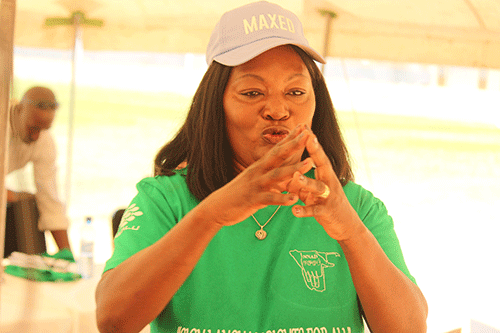Rose-Mary Haufiku
People with disabilities face an array of challenges traversing daily obstacles but also have to overcome discrimination on multiple levels. Government now regularly receive complaints and requests to intervene.
Highlighting multiple forms of discrimination against people with disabilities in a panel discussion on 24 February, disability affairs deputy minister Alexia Manombe-Ncube discussed how disabled people suffer on grounds of their disability, race and gender.
By multiple forms of discrimination, one means discrimination against one person on the basis of more than one ground. The deputy minister revealed that people with disabilities are often discriminated against and that at least three people report being discriminated against on a daily basis.
She explained that discrimination makes participating in everyday life more difficult. It can affect education and employment opportunities and limit social interactions.
“Awareness raising is a key aspect to addressing these discriminatory practices,” suggested Manombe-Ncube. People who are aware are less likely to discriminate. If disability concerns are mainstreamed in all offices, ministries, organisations, and institutions, it will open people’s minds and hearts.
Deaf association chairperson Beata Armas agreed with Manombe-Ncube on the issue that disabled people are discriminated against, adding that the majority of their issues are education-related. She stated that they, too, want to be educated, but that they are unable to do so due to their disabilities.
Armas further said their problems have existed for years and that nothing has been done to address them thus far. She also stated that they sometimes wish to study to become nurses or doctors, but are always told that they are unable to do so due to their disabilities.
“You will find people with disabilities that perhaps want to become nurses, but then they’ll say ‘no, you have a disability, how would you learn or how would you become a nurse or why would you want to become a nurse if you are disabled’,” she related.
She said they are experiencing challenges not only in the education sector but also in the employment market. She said in most cases, people with disabilities are not given consideration for senior positions in companies and are instead relegated to menial jobs.
“You will never find a person with disability in a senior position, many a time we are given menial jobs and sometimes we are qualified, we have the skills, we have the experience but yet we will not get any position that is superior in an organogram,” said Armas.
She claimed that in Namibia, most organisations only hire people who aren’t disabled. As a result, they feel isolated and discriminated against wherever they go.


